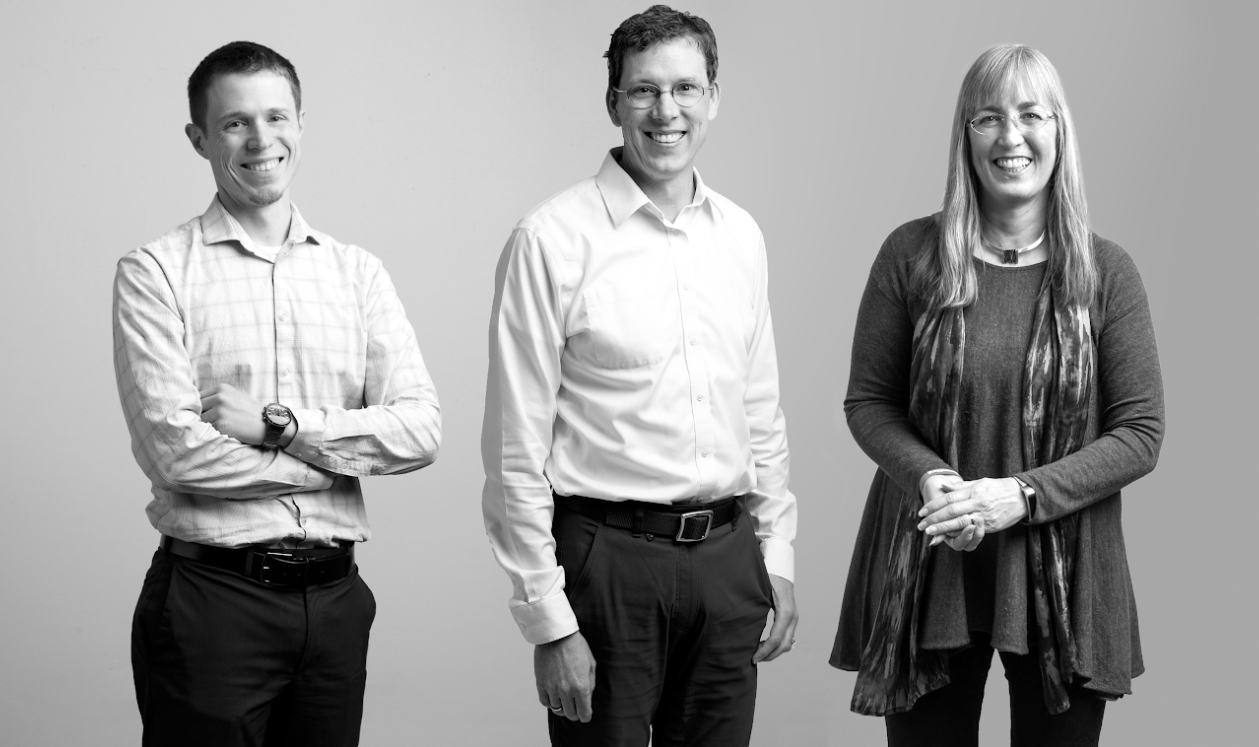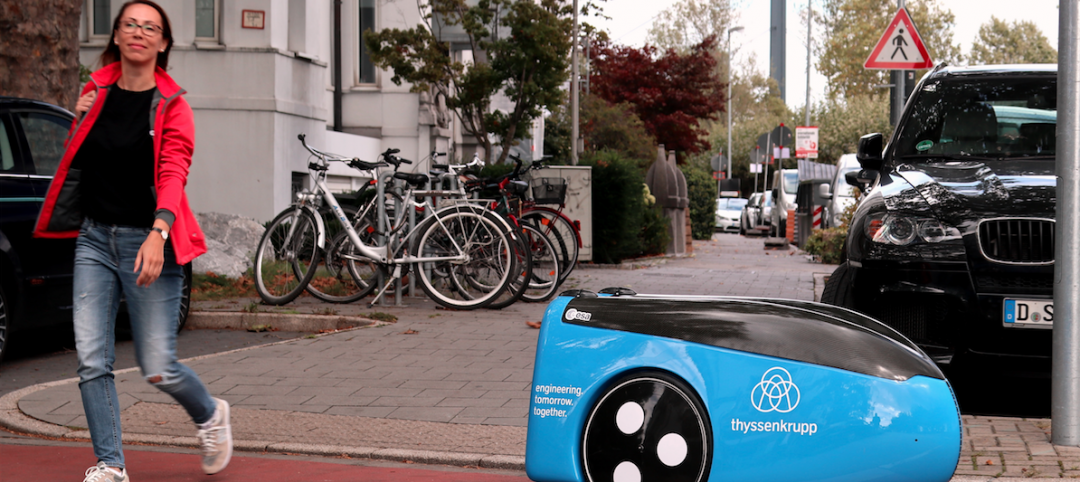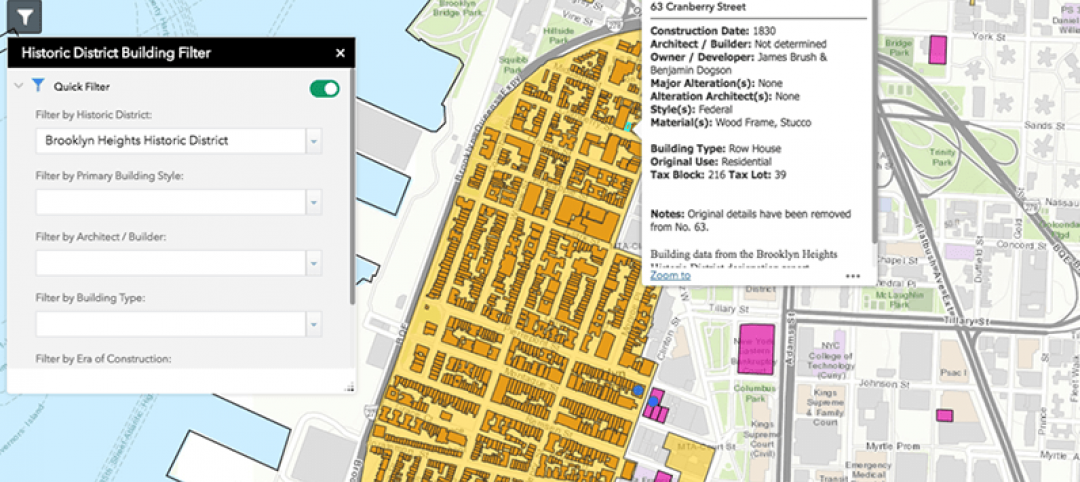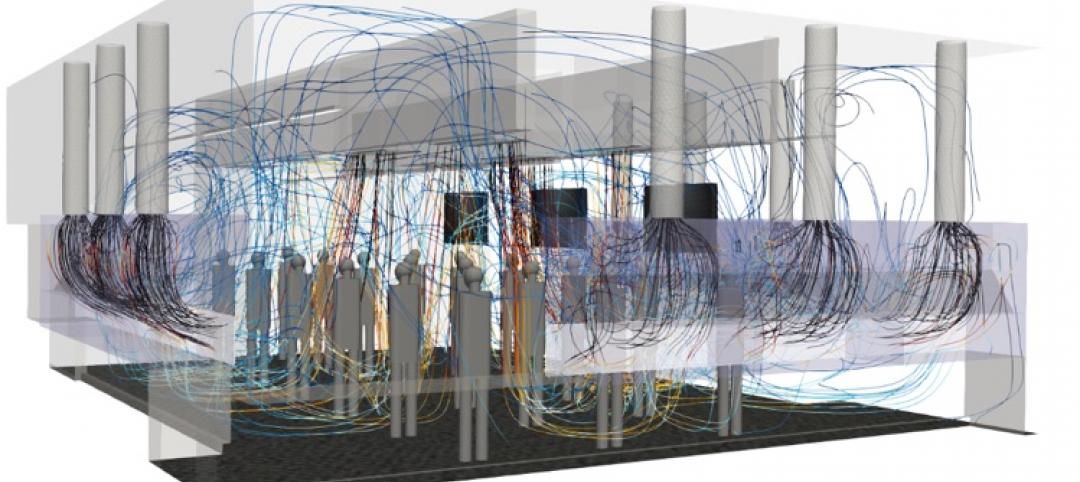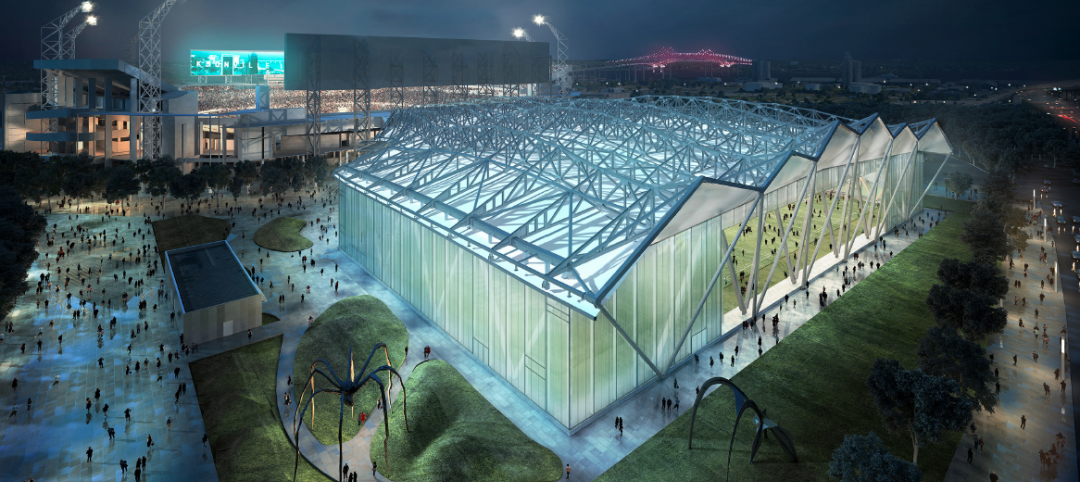In an effort to provide its clients with reliable information about how their buildings are likely to impact their occupants, the architectural firm NBBJ has created a Design Performance Group that is being led by Peter Alspach, a building physicist; Margaret Montgomery, FAIA, LEED AP BD+C, an environmental futurist; and Nate Holland, a computational expert.
Alspach, whose title is Director of Design Performance, joins NBBJ from ARUP, where he was Principal and Global Leader of Environmental and Building Physics. Montgomery is NBBJ’s Sustainable Design Leader. And Holland is the Seattle-based firm’s Digital Innovation Director.
One of NBBJ’s goals for its Design Performance Group is to transform buildings into “open source” platforms that through constant feedback loops provide data that can be analyzed and then harnessed for the purpose of connecting design with improvements in occupants’ cognitive function, productivity, and health.
The Group is expected to strengthen NBBJ’s focus on improvements such as enhancements to interior comfort and daylight access, and reductions in water and carbon emissions. NBBJ states that the Group will explore solutions using predictive analytics, machine learning, advanced building engineering, computational tools and applied science, and neuroscience research.
NBBJ recently used computational tools to optimize complex glazing geometry, saving a leading tech client in Seattle $1.5 million in manufacturing costs. The application of data analytics enables Renown Health in Nevada to serve more patients without expanding its real estate footprint. NBBJ also developed new design tools that ensure every employee at the headquarters of Chinese tech giant Alibaba is within a 60-second walk from outdoor green space.
Related Stories
AEC Tech | Feb 28, 2018
Nine tips to bridge the cybernetic design gap
Unlike other technologies we have seen, augmented and virtual reality are looking to have staying power in a truly disruptive way.
AEC Tech | Jan 29, 2018
thyssenkrupp tests self-driving robot for ‘last mile’ delivery of elevator parts
“With driverless delivery robots, we could fill a gap and get spare parts from our warehouses to the jobsite faster,” said thyssenkrupp SVP Ivo Siebers.
AEC Tech | Jan 25, 2018
Four high-tech solutions to mitigate theft on the jobsite
Geo-fencing and drone surveillance are among the tech solutions for protecting jobsites from asset loss.
BD+C University Course | Jan 2, 2018
The art and science of rendering: Visualization that sells architecture [AIA course]
3D artist Ramy Hanna offers guidelines and tricks-of-the-trade to ensure that project artwork is a stunning depiction of the unbuilt space.
Reconstruction & Renovation | Dec 21, 2017
Interactive map includes detailed information on historic New York City buildings
The New York City Landmarks Preservation Commission launched a new, enhanced version of its interactive map, Discover NYC Landmarks.
AEC Tech | Dec 20, 2017
6 CFD post-processing tips to improve visualization productivity and quality
Southland Engineering’s Abdullah Karimi offers helpful tips for making computational fluid dynamics (CFD) models more productive.
Sponsored | Building Team | Nov 3, 2017
4 strategies for marketing your AEC firm
Having a clearly defined competitive brand and a fine-tuned marketing approach can give your firm a significant competitive advantage.
Sponsored | AEC Tech | Oct 19, 2017
3 reasons why your firm needs cloud software
For firms looking to propel their architectural design services to new heights and levels of sophistication, a consolidated cloud-based platform is a valuable asset.
AEC Tech | Oct 6, 2017
How professional bias can sabotage industry transformation
Professional bias can take the form of change-resistant thinking that can keep transformational or innovative ambitions at bay. Tech consultant Nate Miller presents three kinds of bias that often emerge when a professional is confronted with new technology.
AEC Tech | Aug 25, 2017
Software cornucopia: Jacksonville Jaguars’ new practice facility showcases the power of computational design
The project team employed Revit, Rhino, Grasshopper, Kangaroo, and a host of other software applications to design and build this uber-complex sports and entertainment facility.


